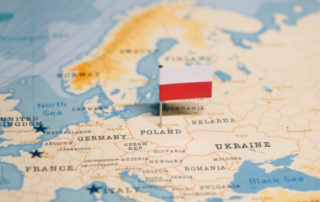
Despite a strong democracy, Argentina struggles with public trust and corruption. During 2022, protests erupted throughout Argentina in response to the economic crisis and increased poverty. In August 2022, groups marched through Buenos Aires. The Confederation of Labour - CGT union emphasized that the protest was not against the government, but to demand effective measures to curb price rises. Protests increased in November 2022, with social organizations demanding more support to counter inflation. In response to the corruption allegations and attacks against Vice President Cristina Fernández de Kirchner, supporters staged protests during the latter half of 2022 and gathered outside her house to express support.
On September 1, 2022, a failed assassination attempt on Kirchner led to more protests condemning political violence. In December 2022, Kirchner was found guilty of corruption when she was president, skimming almost $1 billion from fake contracts from public works projects. Argentina also struggles with police brutality and femicide: in the first eight months of 2021, advocacy group Mumalá registered at least 118 femicides, and in 13% of those cases the perpetrator was a member of security forces. In 2020, over 250 femicides were recorded.
Between 2013 and 2020, 5,965 gender violence complaints were filed against police officers in the Buenos Aires province, with 80% of those officers still in uniform. The “Ni Una Menos” movement has been protesting violence against women since 2015 and the pressure resulted in some change: abortion was legalized, the Ministry of Women, Genders, and Diversity was created, and Micaela’s Law requires training in gender issues and violence against women for all public employees. Despite this, femicides remain an issue.
Argentina remains the third largest economy in Latin America and maintains excellent trade relationships with both the United States and China. Under the Fernandez Administration, taxes on high-income households and exports have increased, the minimum wage has been raised, and interest rates lowered. However, the country has one of the highest inflation rates in the world and four in ten citizens live below the poverty line.
Recently, Argentina’s economy has struggled with Covid-19, price and capital controls, inflation, and debt. Foreign investment dropped 38% in 2020 as compared to 2019, and the economy overall has shrunk each year since 2018. In April 2023, the IMF aided Argentina by easing the targets of its $44 billion loan deal. However, this decision faced criticism as some fear this will lead to a potential devaluation that would bring Argentina into a deeper crisis.
The U.S. and Argentina maintain a bilateral relationship based on economic ties and shared interests. The two countries have worked together to strengthen counterterrorism cooperation throughout the Western Hemisphere. For example, Argentina hosted the second Western Hemisphere Counterterrorism Ministerial (WHCM) in Buenos Aires in 2019. In addition, Argentina designated Hizballah as a terrorist organization, the first country in Latin America to do so.
Argentina and the US also collaborate on crime countering initiatives, working together to form the Regional Security Mechanism. During the Covid-19 pandemic, the US assisted Argentina in making sure personal protective equipment was available to frontline workers and medical staff, and the US also donated an assortment of protective equipment, including N95 masks and gloves. The US provided funding through the Migration and Refugee Account to further help with humanitarian assistance and Covid-19 response efforts.
Argentina and the US also maintain a trade surplus, and the US is the largest foreign investor in Argentina, with about $10.7 billion in stock foreign direct investment. There are more than 300 US companies doing business in Argentina. In 2019, a US interagency delegation visited Argentina to promote women-led small businesses in support of women’s economic empowerment. The US is seeking to mobilize $1 billion for women-owned, women-led businesses in Latin America.
Argentina is facing high inflation rates, which has prompted Argentine producers to request more money from the Central Bank to import the same quantity of goods. The Russia-Ukraine war has also affected prices and the Argentine government imposes import barriers that cause delays or denials of licenses to importers. Importers also face strict limitations on their ability to access foreign currency to pay for imported goods and services. Despite the economic turmoil that Argentina is experiencing, there are still significant opportunities for U.S. companies in energy, mining, health, agriculture, information technology, and infrastructure sectors.
Over 300 U.S. companies are doing business in Argentina, which is a great sign, and U.S. companies are widely respected in Argentina. However, economic instability is still something to continue monitoring, as the situation may worsen. This should be an important consideration when establishing contracts with partners and customers in Argentina.
As evidenced by recent events involving the former president of Argentina, Cristina Kirchner, corruption is a problem at the highest levels of the Argentinian government. US businesses considering doing business in Argentina need to ensure that they have a robust compliance program in place that covers the Foreign Corrupt Practices Act (FCPA) and Bank Secrecy Act (BSA) requirements. If considering partnering with a new company or individual in Argentina, companies should consider conducting a due diligence investigation to uncover any hidden risks that could cause regulatory violations and even reputational damage to the company.



